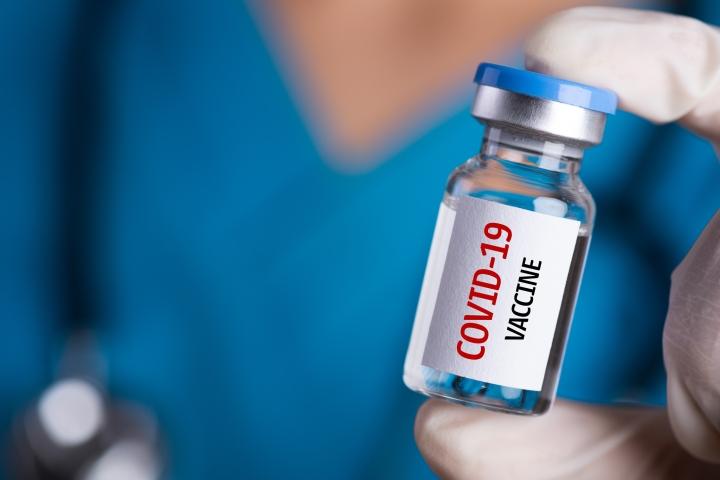Lifesaving Innovation: Dartmouth Discovery Unlocks Vaccine Technology

Finding solutions to complex, real-life challenges is a race against the clock.
That’s the sentiment of researchers at the Geisel School of Medicine at Dartmouth, a spirit that drives discovery—including an innovation credited with saving more than 3 million lives in the United States.
Spike Protein Research Sparks Breakthrough
A team of Dartmouth researchers—along with collaborators at Scripps Research Institute and the National Institute for Allergy and Infectious Disease—developed a method to stabilize coronavirus spike proteins for use as vaccine antigens. This initial research, performed between 2014 and 2016, was in response to an earlier worldwide coronavirus outbreak, commonly known as SARS—severe acute respiratory syndrome. The scientific community was bracing for the inevitable, racing for a vaccine.
Fast forward to 2020. The Geisel team’s approach to antigen modification proved essential when researchers and biotechnology firms around the world rushed to develop a vaccine against SARS-CoV-2, the agent responsible for the global COVID-19 pandemic.
From Microscope to Market: Saving Lives, Supporting Science
During a time of unprecedented urgency, this research was made broadly available through nonexclusive licenses to vaccine developers. According to reports, in the two years since the first COVID-19 immunization was given, more than 18 million hospitalizations and 3 million deaths were prevented.
In December 2022, the National Institutes of Health—which shares ownership of the intellectual property of the research—finalized terms of a licensing agreement with Moderna, the Massachusetts-based pharmaceutical and biotechnology company. In March 2023, this medical innovation received a Patents for Humanity award from the U.S. Patent and Trademark Office.
This widespread recognition and worldwide impact also make a difference closer to home. Reinvesting revenue from breakthrough technologies like the vaccine strengthens our academic and research enterprise, equipping the next generation of scientists.
Empowering a Culture of Collaboration
The COVID-19 vaccine changed—saved—millions of lives. And it’s a testament to scientific inquiry and what happens when people search for answers together.
The Geisel team, which included faculty, postdocs, and graduate students, is a prime example of the collaborative culture across Dartmouth’s four graduate schools.
“The collaboration and technologies developed here make the world a better place,” says President Sian Beilock. “And the far-reaching, everlasting impact of that research continues to make Dartmouth the place that brings ideas to life.”
***
The research happening at Dartmouth today builds off a rich history of life-altering, game-changing innovation, which includes the first-ever clinical X-ray in 1896 and the birth of the BASIC computer programming language—and it also fuels the future of discovery across our institution.